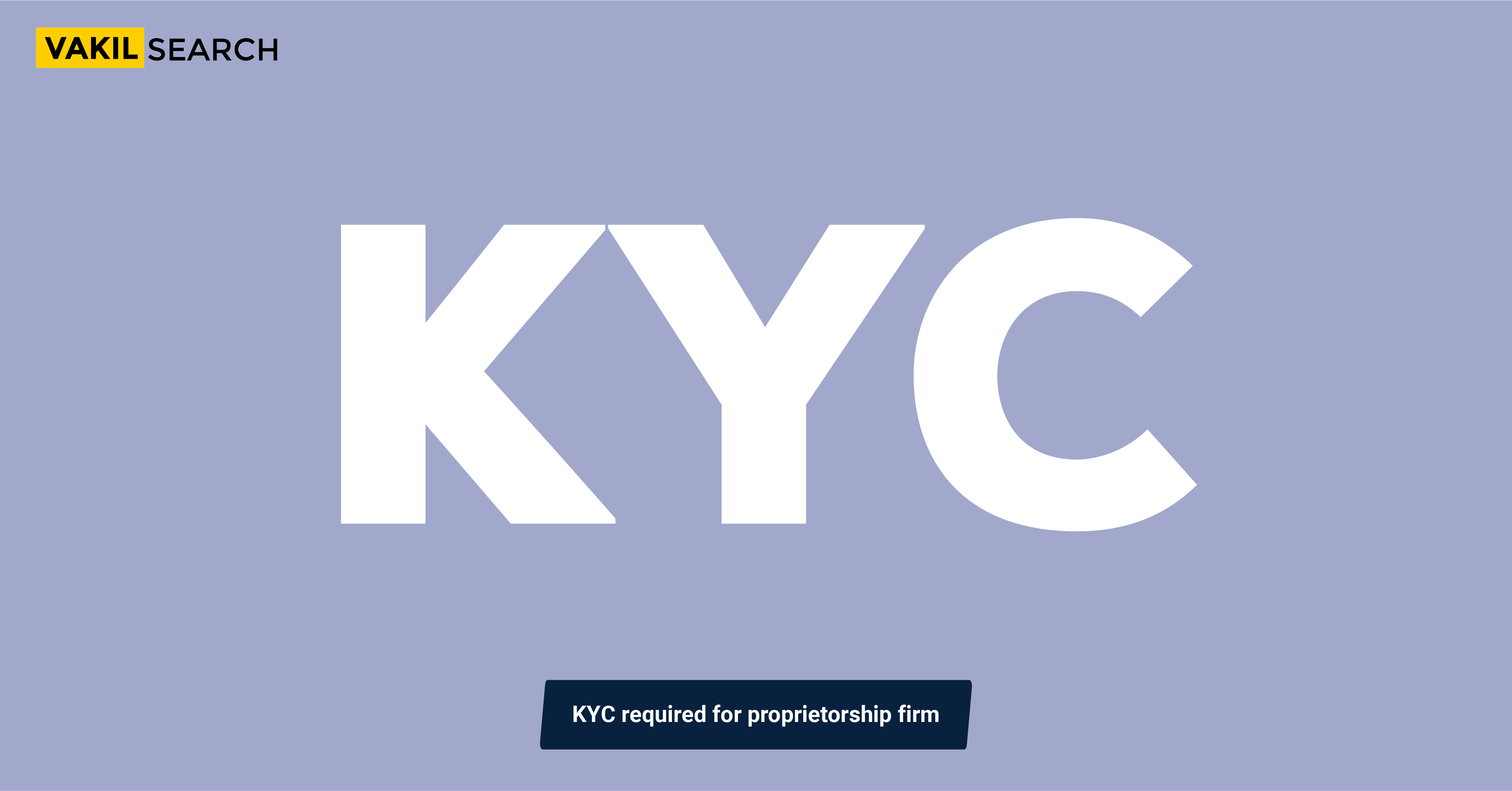KYC, or Know Your Customer, is a process by which financial institutions and other regulated entities collect and verify information about their customers. This information includes the customer's identity, address, and other relevant details. KYC is required for proprietorship firms in order to reduce the risk of financial crime and improve access to financial services.
What is KYC?
Know Your Customer (KYC) is a process by which financial institutions and other regulated entities collect and verify information about their customers. This information includes the customer’s identity, address, and other relevant details. KYC is important for preventing financial crime, such as money laundering and terrorist financing.
Why Is KYC Required for Proprietorship Firms?
Proprietorship firms are businesses that are owned and operated by a single individual. This means that the proprietor is personally responsible for all of the firm’s debts and liabilities. This also means that the proprietor’s personal KYC information is required for the firm to open a bank account or engage in other financial transactions.
Benefits of KYC for Proprietorship Firms
KYC offers a number of benefits for proprietorship firms, including:
- Reduced risk of financial crime: KYC helps to prevent financial crime, such as money laundering and terrorist financing.
- Improved access to financial services: KYC helps proprietorship firms register open bank accounts and engage in other financial transactions.
- Enhanced reputation: KYC helps proprietorship firms build a good reputation with financial institutions and other businesses.
What KYC Documents Are Required for Proprietorship Firms?
The KYC documents required for proprietorship firm registration vary depending on the financial institution or other regulated entity. However, the following documents are typically required:
- Proof of identity of the proprietor, such as a passport, driving license, or Aadhaar card.
- Proof of address of the proprietor, such as a utility bill or bank statement.
- Proof of business registration, such as a GST certificate or Shop and Establishment Act certificate.
In addition to the above documents, some financial institutions may also require the following:
- PAN card of the proprietor and the firm.
- Income tax returns of the proprietor and the firm.
- Bank statements of the firm.
How to Complete the KYC Process for a Proprietorship Firm
The KYC process for a proprietorship firm is typically quite straightforward. The proprietor will need to provide the required documents to the financial institution or other regulated entity. The financial institution will then verify the information provided and complete the KYC process.
Gather the Required Documents
This includes proof of identity, proof of address, and proof of business registration. You may also be required to provide your PAN card, income tax returns, and bank statements.
Visit the Financial Institution or Other Regulated Entity
You can usually complete the KYC process in person or online.
Provide the Required Documents to the Financial Institution
They will verify the information provided and complete the KYC process.
Once the KYC process is complete, you will be able to open a bank account or engage in other financial transactions on behalf of your proprietorship firm.
- Make sure that all of the documents you provide are clear, legible, and up-to-date.
- If you are completing the KYC process in person, be prepared to provide additional information about yourself and your business.
- If you are completing the KYC process online, be sure to do so on a secure device and network.
- Keep a copy of all of the documents you provide for the KYC process.
KYC for Proprietorship Firms in India
In India, the KYC process for proprietorship firms is regulated by the Reserve Bank of India (RBI). The RBI has issued a number of guidelines on KYC for banks and other financial institutions. These guidelines require banks and other financial institutions to collect and verify the following information about their customers:
- Full name
- Date of birth
- Father’s name
- Mother’s name
- Permanent address
- Temporary address
- Occupation
- PAN card number
- Aadhaar card number
- Any other relevant information
The RBI also requires banks and other financial institutions to update their customers’ KYC information on a regular basis.
Did you know?
KYC was first introduced in the United States in the 1970s in response to the Bank Secrecy Act (BSA): The BSA was passed in 1970 to help prevent money laundering and other financial crimes. The BSA requires banks and other financial institutions to collect and verify the identity of their customers.
KYC has become increasingly important in recent years due to the rise of global terrorism and financial crime: KYC helps financial institutions to identify and report suspicious activity, which can help to prevent financial crime and terrorism.
KYC is now required by law in many countries around the world: The specific requirements vary from country to country, but KYC typically involves collecting and verifying the customer’s identity, address, and other relevant information.
Here is another fact about KYC:
KYC is not just for banks and other financial institutions: Other businesses, such as real estate agents, lawyers, and accountants, are also required to comply with KYC regulations. This is because these businesses can also be used to launder money and finance terrorism.
Conclusion
KYC is an important process for all businesses, including proprietorship firms. By completing the KYC process, proprietorship firms can reduce their risk of financial crime, improve their access to financial services, and enhance their reputation. Additionally, when coupled with company registration, the KYC process further solidifies the firm’s credibility and operational integrity.










